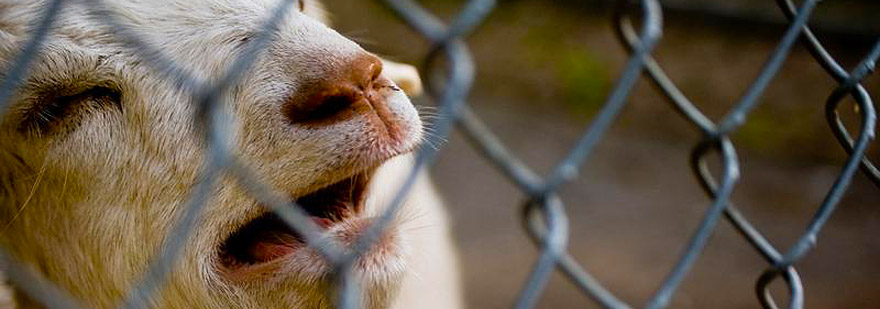Introduction to sentience

Sentience is the capacity to have experiences, that is, conscious states. This introduction to sentience explains what this means in more detail. Read more
The idea that only humans are sentient

Those who deny that nonhuman animals are sentient sometimes claim that it cannot be demonstrated whether animals are sentient. Read more
Sentience

Introduction to sentience What is sentience The problem of consciousness Consciousness and self-consciousness Animal consciousness and cognition Animal sentience Criteria for recognizing sentience The idea […] Read more
Criteria for recognizing sentience

There are three general criteria for deciding whether a being is sentient. They involve considerations that are behavioral, evolutionary, and physiological. Read more
What beings are not conscious

Beings that have no centralized nervous systems are not sentient. This includes bacteria, archaea, protists, fungi, plants and certain animals. Read more
What beings are conscious?

We have reasons to conclude that vertebrates and a large number of invertebrates are conscious based on physiological, behavioral, and evolutionary evidence. Read more
The problem of consciousness

How does consciousness emerge? We don’t yet know what causes it to arise. We do have reasons to conclude certain animals are sentient, while others are not. Read more
Indicators of animal suffering

If we accept that certain behaviors in humans are indicators of suffering, then evolutionary logic tells us that these same behaviors in nonhuman animals show […] Read more
The relevance of sentience

The relevance of sentience can be argued by claiming that being sentient is what matters to be positively or negatively affected, rather than simply being alive or species membership. Read more
Consciousness and self-consciousness

Consciousness is being aware. Self-consciousness is being aware of oneself. Being conscious, rather than self-conscious, is the key concept in ethics. Read more
Animal consciousness and cognition

Animal cognition is studied much more than animal consciousness. It should be the other way around, because consciousness is more relevant to animal ethics. Read more